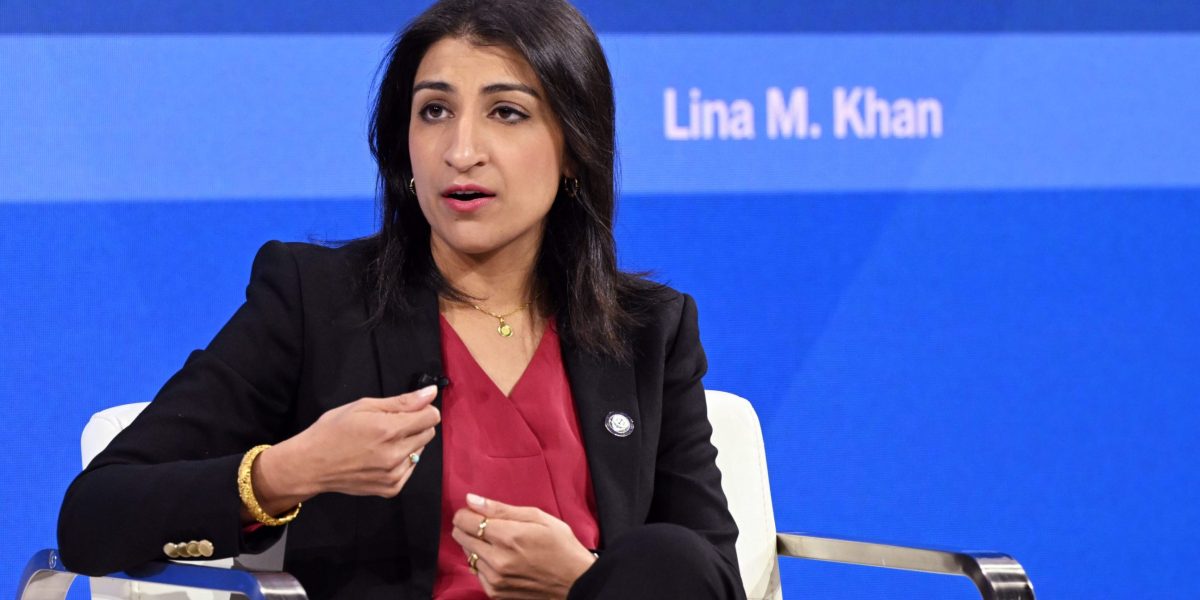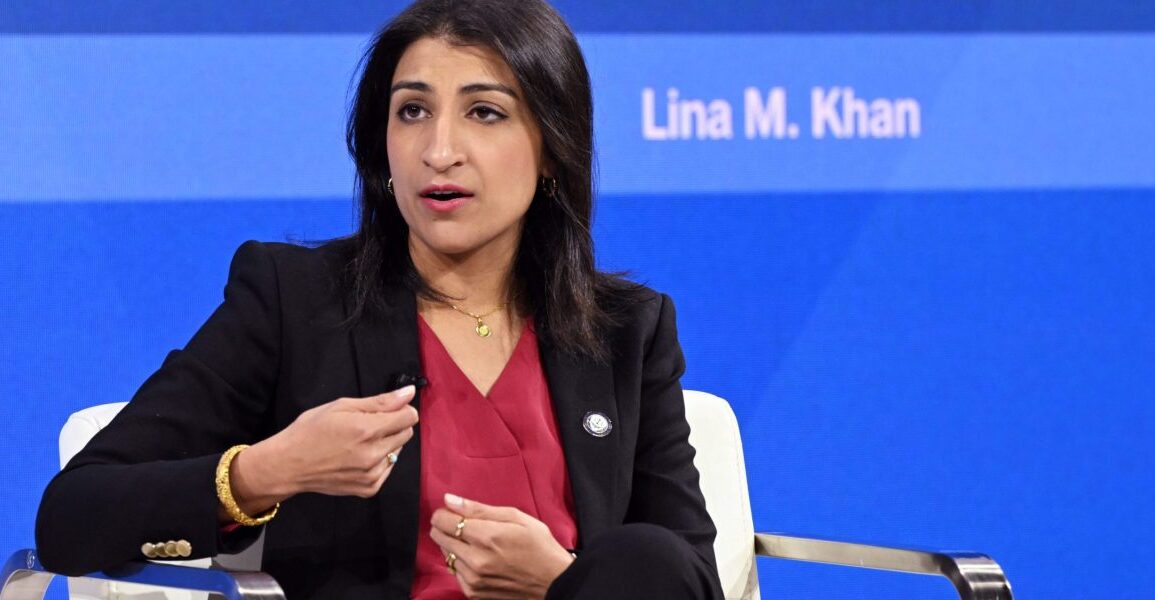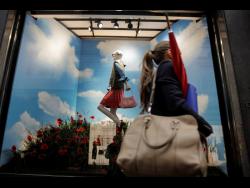
The Federal Trade Commission sued to halt the merger between luxury fashion companies Tapestry and Capri over fears of steep price increases on handbags and accessories. But the complaint filed in federal courts on Monday has the fashion conglomerates doubling down on the deal.
Tapestry, the company behind Coach, Kate Spade, and Stuart Weitzman, would acquire Capri, which controls Michael Kors, Versace, and Jimmy Choo in a deal valued at $8.5 billion. The move marks the first time the Biden administration has intervened on antitrust grounds in the fashion accessories sector. These large conglomerates believe the merger is necessary in order for the brands to thrive in an ultra-competitive luxury sector, something they say the FTC is not familiar with.
“It’s quite clear to us that they don’t understand how consumers shop today, and they don’t understand the dynamics of a marketplace with no barriers to entry, constant influx of new competitors,” Tapestry CEO Joanne Crevoiserat said in a Monday interview.
Capri reiterated Crevoiserat’s sentiment in a statement, saying that it “intends to vigorously defend this case in court alongside Tapestry and complete the pending acquisition.”
But Henry Liu, FTC’s director of the Bureau of Competition, argues Tapestry’s acquisition of Capri would “further entrench its stronghold in the fashion industry.”
“This deal threatens to deprive consumers of the competition for affordable handbags, while hourly workers stand to lose the benefits of higher wages and more favorable workplace conditions,” he said in a Monday press release.
The FTC’s complaint outlines that Coach, Kate Spade, and Michael Kors are vying for similar consumers, and that a merger would eliminate opportunities for discounts, innovation, and wage increases for the two companies’ 33,000 employees that a competitive market encourages. The competition is most fierce in the luxury handbag market—that Coach and Kate Spade occupy—which was worth $31.87 billion in 2023, according to Precedence Research.
Tapestry has benefitted from sales of Coach’s leather goods, which helped generate $1.56 billion in revenue for the brand last quarter. Its parent saw a 3% year-on-year revenue uptick as a result. But Capri’s financials look dire: It reported $1.23 billion in first quarter revenue, a nearly 10% drop compared to the same period a year before. Jimmy Choo was the only one of its three brands to see a revenue increase. Shares of both companies’ stocks sagged on Tuesday following the FTC’s release of its complaint.
The oxymoron of ‘affordable luxury’
The brands’ price tags—relatively low compared to its European competitors such as Hermes and Valentino–gives it the status of an “affordable luxury,” making its products more accessible to a wider range of consumers. Coach coined the term over 20 years ago to create a space for itself between “mass market” and “true luxury.”
While the moniker may seem like an oxymoron—afterall, a Coach bag can still set you back over $500—the sector is expected to grow by over $3.5 billion from 2022 to 2027, according to market research firm Technavio. That’s a much different trajectory than the rest of the luxury industry, which has been headed toward a slowdown.
Gucci’s 2024 first quarter sales plummeted 18%, its parent company Kering reported Tuesday. The conglomerate, which also includes Yves Saint Laurent and Bottega Veneta, had an overall 10% drop in sales for the quarter. However, Hermes and Prada have propped up the industry by leaning into the appeal for quiet luxury.
Law experts said that Tapestry and Capri will rely on their affordable luxury status to paint themselves as vulnerable.
“Reading between the lines of the announcements they made so far, I think they’re going to argue that they face competitive pressures and restraints both from mass market and high-end true luxury, Donald Hawthorne, an antitrust lawyer and partner at Curtis, Mallet-Prevost, Colt & Mosle LLP told Fortune.
Daniela Della Rosa, a luxury brand advisor and partner alongside Hawthorne at Curtis, suggested that the acquisition would muddy Tapestry and Capri’s argument. Yoking the two together would create a conglomerate with a vast array of goods beyond handbags, such as shoes and accessories across brands, many with different consumer bases.
“Jimmy Choo does not necessarily have the same customer as Stuart Weitzman in the DNA of each one of the brands and the price positioning,” she told Fortune. “And same thing [with] Versace with Kate Spade: They have nothing to do with each other.”
Tapestry’s merger redux
True to its name, Tapestry has woven together a cadre of brands over the years. In 2015, the company, then consisting only of Coach, merged with Stuart Weitzman. Two years later, Coach acquired Kate Spade in a $2.4 billion deal, and the conglomerate became Tapestry later that year.
But Tapestry’s courting of other mid-tier luxury brands in what the FTC calls “serial acquisitions” has led to increased scrutiny: Should Tapestry and Capri go through with the merger, the new entity would “solidify its dominance in ‘accessible luxury,’ stifle competition from smaller competitors and potential entrants, and contribute to a trend of consolidation in the broader fashion industry,” the FTC wrote in its complaint.
According to Della Rosa, the merger would give Tapestry and Capri the chance to take bigger swings at the rest of the luxury market, which is predominantly European.
“It opens the U.S. market more, considering that this was the first opportunity for a potential luxury conglomerate in the U.S., which doesn’t really exist,” Della Rosa said.
But these companies’ bid to compete with markets in Europe could start industry battles on a new front in the U.S. Tapestry and Capri’s alleged attempts to stifle competition would instead beckon it in new forms.
“I’m really wondering whether this is not also opening the way for more competition coming in from the other luxury brands, or affordable luxury brands, in Europe that want to become more present in the U.S. market,” Della Rosa said.
This post was originally published on this site be sure to check out more of their content.





